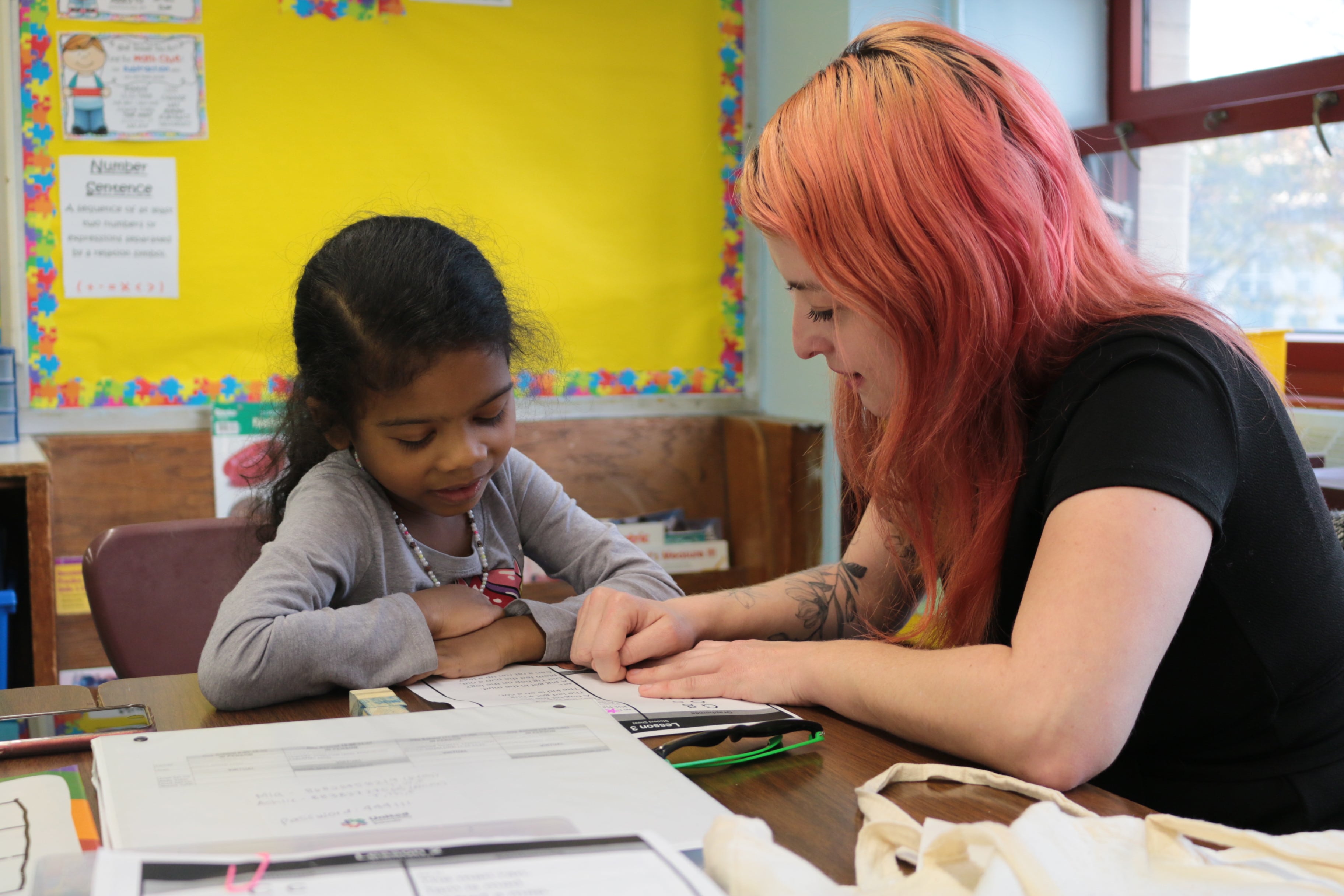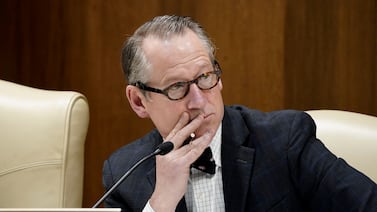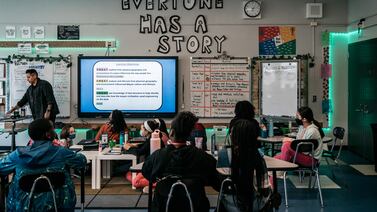Tell us what you think about the tweaks to the reading curriculum mandate by filling out our survey here.
New York City is rolling out tweaks to its sweeping reading curriculum overhaul after facing concerns from teachers and union officials, according to a message sent this week to school staffers.
“In response to feedback, we are updating key policies to address concerns related to pacing flexibility, assessment processes, and professional learning,” schools Chancellor Melissa Aviles-Ramos wrote in a Wednesday letter co-signed by Michael Mulgrew and Henry Rubio, the leaders of the teachers and principals unions, respectively.
The changes come as union officials raised concerns in recent weeks about the implementation of the city’s reading instruction mandate, which requires that schools use city-approved curriculums — a major shift from previous years when schools were largely free to pick their own. The rollout began last school year and expanded to all elementary schools in September.
Purchasing new curriculums, training thousands of teachers, and building support in school communities has been a difficult task. The city’s teachers union has been a major supporter of the curriculum change while the union representing principals has been more resistant, criticizing the mandate as hastily implemented without buy-in from school leaders or community input.
The new policies represent the latest effort to respond to educators’ concerns about the instructional shifts. Some teachers have warned that the materials are densely packed, making it difficult to make it through the lessons as quickly as expected. Others have complained of being asked to adhere to each lesson as if it were a “script” instead of having the freedom to implement it more creatively with their students’ needs in mind.
Under the new guidance, officials emphasized teachers have some flexibility with how they teach the new materials and may face fewer administrative tasks.
Educators may use “professional discretion” in determining how quickly to move through the curriculum materials, the letter states, “with flexibility of up to two weeks.” Schools may face less pressure to gauge student progress as frequently, instead focusing on end-of-unit assessments. And officials stressed that teachers have some leeway to alter their approach.
“While still maintaining the curriculum’s integrity, educators can modify instruction as needed to ensure all students are given access to grade-level materials and standards,” officials wrote.
Teachers should also face fewer demands to manually input assessment and other data. “Spreadsheets related to NYC Reads’ curriculum efforts should not be collected,” officials wrote.
Plus, officials vowed to expand training for superintendents, district teams, principals, and teachers — changes that also appeared to reflect challenges adapting the curriculums for students with disabilities and English language learners. A spokesperson declined to provide details about the new training.
“We will continue to listen to educators in the field as we refine implementation” of the curriculum mandates, Education Department spokesperson Nicole Brownstein wrote in a statement.
But exactly what those changes will mean for classroom instruction remains to be seen.
We at Chalkbeat want to hear from principals, teachers, and caregivers about how the curriculum rollout is going at your school, what you make of the latest tweaks, and what questions you have. Let us know by filling out the form below.







